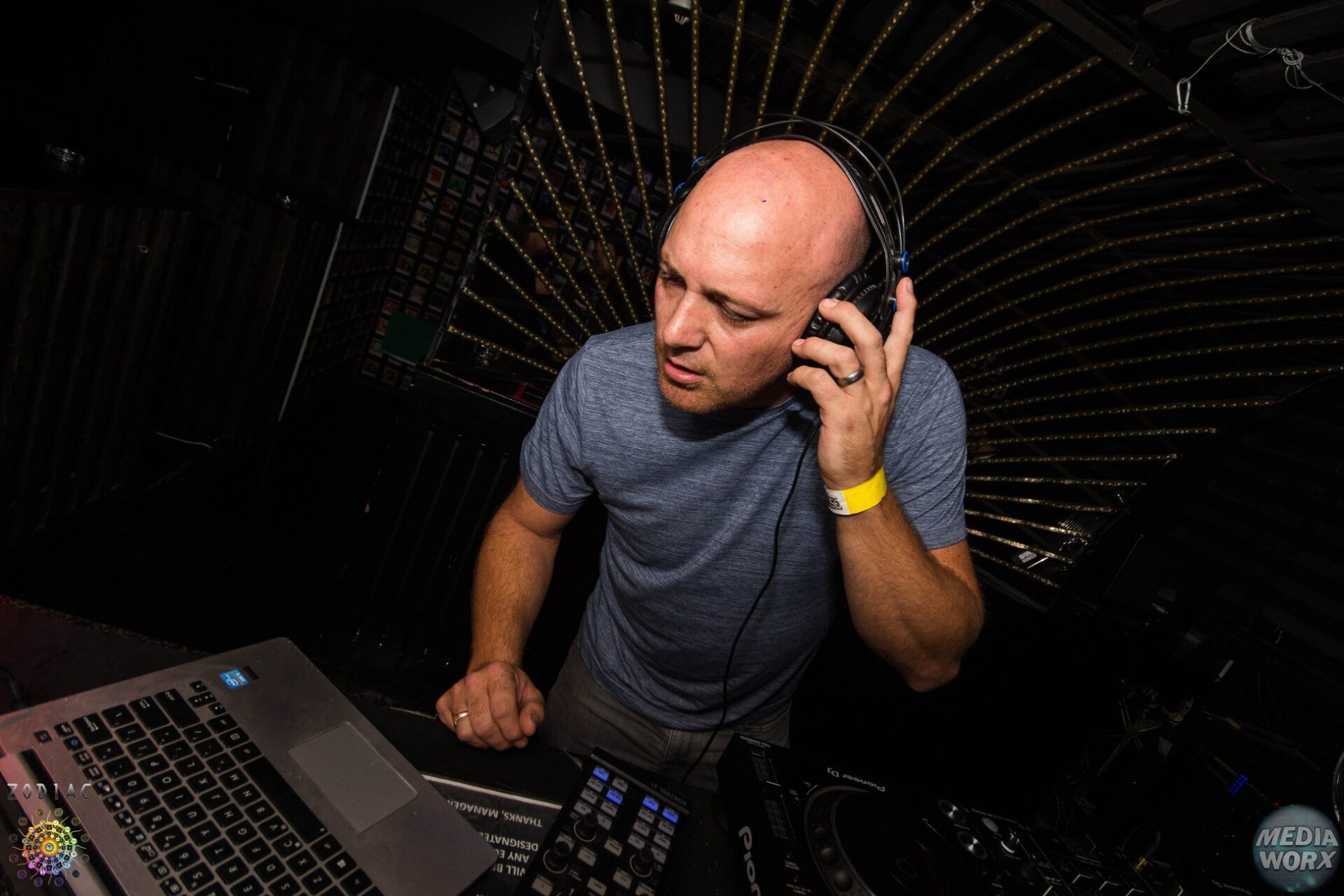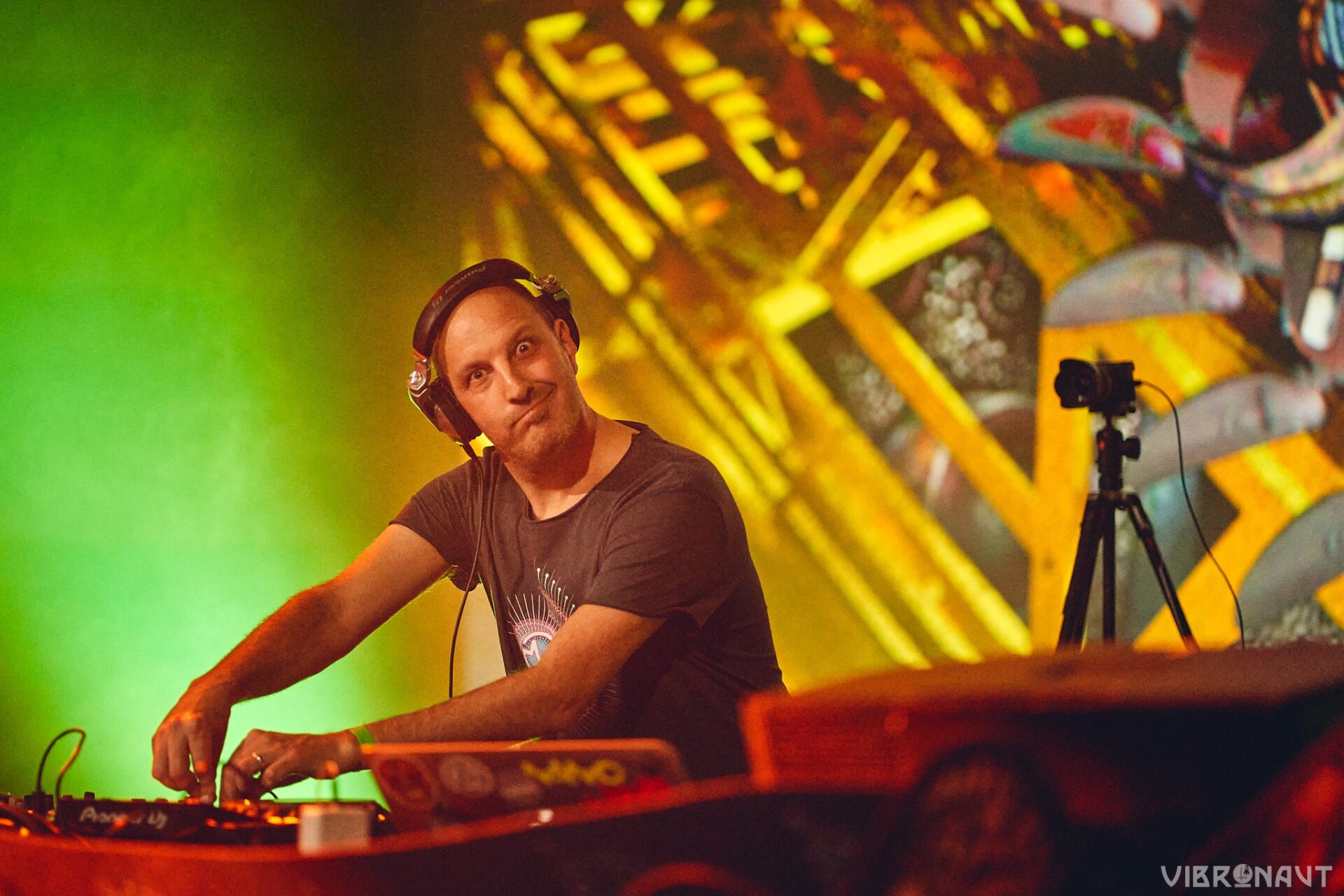Underneath this alias lies a multi-faceted artist who has not only left an indelible mark on the trance community but has also pioneered the genre’s evolution. However, the story of Chris Hoy’s musical journey doesn’t stop at sHiFt – it encompasses a diverse range of projects that have redefined the auditory landscape of psytrance.
Beyond the euphoric beats and mind-bending melodies, Chris Hoy is also the visionary founder of Nexus Media, a renowned record label that has become a powerhouse for psytrance aficionados. The label’s influence has been instrumental in propelling the genre to new heights, and its impact reverberates through the soundscape of countless dance floors worldwide.
Delving deeper into Chris’s musical legacy, we uncover his collaborative ventures as well. His dynamic partnership with Slug birthed the enigmatic Pitch Hikers, a duo known for their intricate sonic journeys that traverse the outer realms of consciousness. Additionally, the triumphant trio of Chris Hoy, Rabdom L, and Phyx conjured the legendary Twisted System, a name that became synonymous with boundary-pushing soundscapes and energetic performances.
In this exclusive interview article, we sit down with Chris Hoy to explore the chronicles of his sonic odyssey. From his early inspirations that ignited his passion for psytrance to the artistic philosophies that drive his creations, we journey through the milestones that have shaped his remarkable career. Join us as we peel back the layers of creativity, innovation, and community building that define Chris Hoy’s enduring legacy in the world of psytrance.
Howzit Chris! To start off, how were you exposed to psytrance?
Hey Psymedia and readers. Okay, the early years. I started listening to Psy in 1995. I was introduced to it unknowingly on the second CD of a Danny Rampling’s mix album – Hallucinogen’s track LSD was a good beginning!
When did you start producing?
In my first year at UCT (1997) I was exposed properly to the genre by some pretty crazy friends, and in early 1998 shortly after attending my first Vortex I began messing about on a simple 1 bar tracker. A tiny beta program called Audiomulch, written by an Australian student. It was about the only thing I could get. My computer was slow and the net barely existed, but it was free and basic.
I spent two years playing with the program learning the basics of synthesis, drum programming and effects without any of the modern ‘help’. Trust me, if you wanted a reverb, you had to make one from millisecond delays. It was even pre-Reason but pioneered the wiring approach that they use. Man, I didn’t even have automation for a year. I had to turn things on and off with the mouse – no arranger.
At what point did you have something worthy of a release?
I had been bashing away in my bedroom solidly for 3 years instead of going to lectures and actually managed to put together something that resembled an album. I pressed 20 copies of Bubble at the Right Temperature and sold them all! It got me my first set of gigs and allowed me to meet some other cool cats calling themselves Timecode.
It was about this time (1999-2000) that I got hold of a copy of Reason and I never looked back. We were doing events at the time but soon realized that the label was the way to go and started releasing our music to the world in 2001. The same year I graduated from UCT.
How would you describe your sound?
Our sound was a bastardisation of the English and French styles of Psy and the German Techno Trance. We had the ripping leads, pounding drums, huge basslines and epic pads that just pretty much blew everything else out of the water by 2003.
Twisted System was a huge part of this. Craig’s (Rabdom L) mad melodies and mental pads, Ian’s (Phyx) mechanical rhythms and searing effects, and my production and arrangement just made a magical combination for exploring the depths of mental psychedelia and dancing like maniacs!
We were finding success all over the world and the glory days ran as long as 2008 when the final switch to Full-On occurred.
A few years later you started Nexus Media with Slug (together known as Pitch Hikers).
Yeah, I started Nexus Media at the peak of the South African Psytrance boom in 2004. Timecode was four guys and we all had so much music to release and sheez, I wanted to make more money myself! My first few CD’s sold easily 2 or 3 thousand copies – that’s huge!
I got Liam (Slug) involved in 2005 but shortly that the landscape changed drastically with the internet and other new technologies throwing sales and CD’s right out of the picture. By 2008 if you weren’t prepared to move to Europe and travel every weekend for gigs you pretty much couldn’t sustain a trance producer lifestyle in South Africa anymore because sales had all but disappeared.
Anyhow, we soldiered on in the face of it and slowly accumulated a really solid group of artists. Mostly new faces and that’s pretty much how I like to do it still. I have seen Nexus Media launch some pretty cool acts like Deliriant, Hydraglyph, RAM, Pitch Hikers, Abomination, Brethren. Our sound differed immediately from Timecode – less evil more kanevil!
How did you get the label off the ground?
The best decision was actually doing it; just getting on with things and not wasting time imagining them. My first release was a compilation entitled Penguin Rebellion that was basically a Pitch Hikers collaboration before we were called that. I didn’t have to buy the tracks upfront so that was cool, but we did need cash for our first CD pressing and some adverts in magazines. These days you don’t need a cent. But because it’s much easier to get in, there’s let’s just say, a lot more crap out there. Second CD was the RAM album – it cost me a lot of money upfront, but I made it back easily!
You put some of your classics on Soundcloud as a free download. Do you think free music is the new direction?
It’s nothing new, free has worked as long as man has needed to market his products. Now I’m not making any money on that old rubbish and some people still like it, so why not make it available through an official channel that I control? It’ not only old classics, but I have also given away some more recent ones that I never planned to release – bootlegs and stuff.
Honestly, releasing on a label is the same as giving it away. The sales are so minimal that they barely cover the cost of the administration, mastering, and artwork. It’s just another channel, a branding mechanism to get your stuff heard, then you can hope like hell it’s good enough to get you bookings.
You’ve also released under the alias ESCape, USB Human and Mantis
I’ve had a bunch of ESCape releases on Just Music and Ministry of Sound. I have up-skilled myself a bit in Electro, Dubstep and other EDM forms. Nexus Bass is my way of exploring new avenues. I have found there are a number of young producers in South Africa not receiving the correct exposure.
USB Human was the name I originally started to make Electro under. Mantis is kinda evil boutique stuff made to order. Fat, dark, thick wads of sound, flowing over hammering beats and eerie pads. Meaner than anything else I have done, it’s badass to the T!
Thanks for the interview! Any last words?
Thank you for letting me share my thoughts. It’s always a pleasure. Have a wonderful day everyone!






